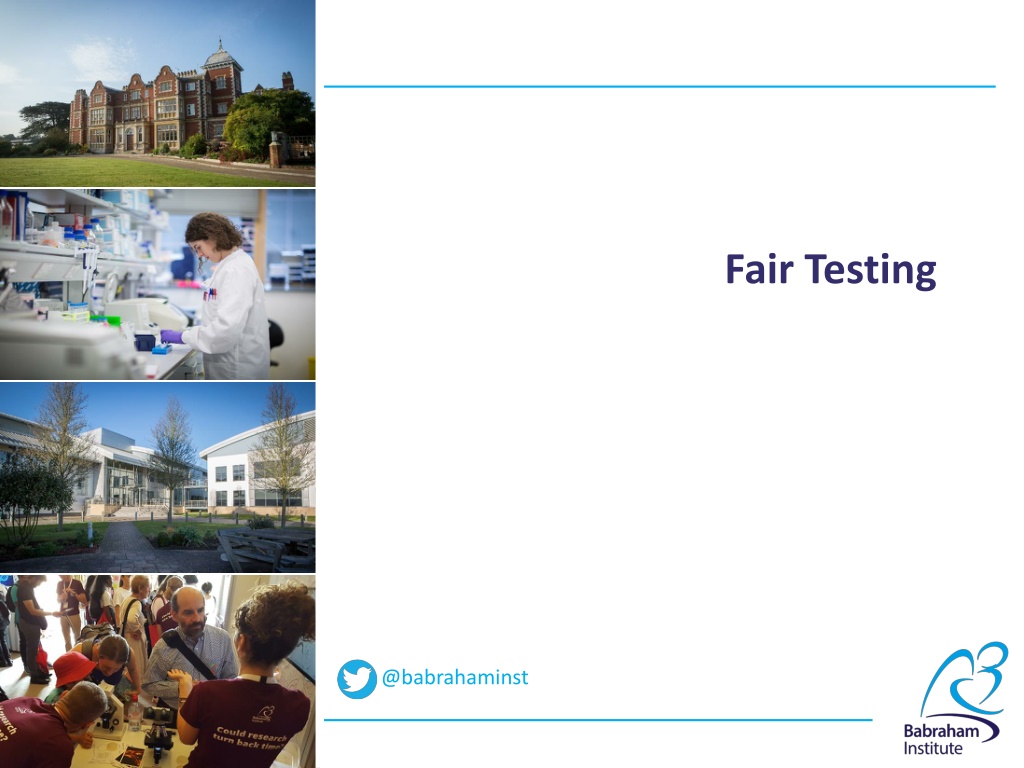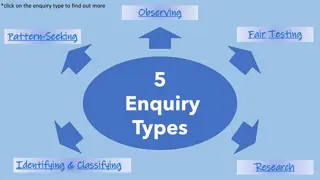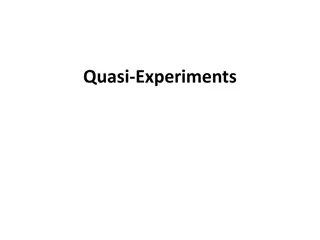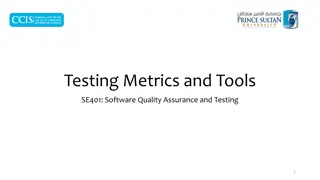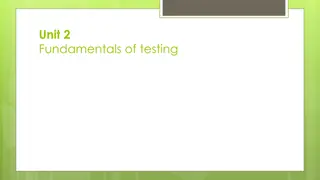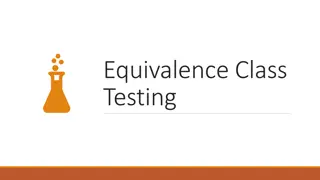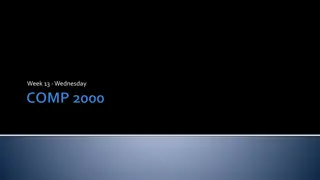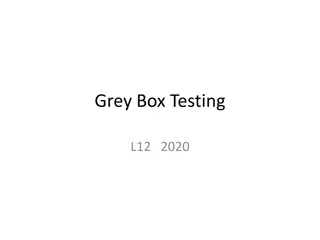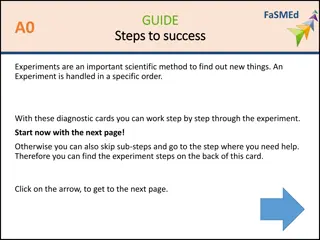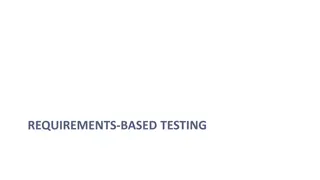Understanding Fair Testing in Experiments
Explore the concept of fair testing in scientific experiments, learning about variables, controls, and the importance of unbiased testing methods. Discover how to design fair experiments and analyze results effectively.
Download Presentation

Please find below an Image/Link to download the presentation.
The content on the website is provided AS IS for your information and personal use only. It may not be sold, licensed, or shared on other websites without obtaining consent from the author. Download presentation by click this link. If you encounter any issues during the download, it is possible that the publisher has removed the file from their server.
E N D
Presentation Transcript
Fair Testing @babrahaminst
Learning Outcomes Be able to explain what makes an experiment fair All students will: Provide results on which paper towel is best following a fair test Most students will: Explain the different types of variables that are required to make a test fair Some students will: Key word/s Test, fairness, experiment, practical
Starter: Which of these is a fair test? We wanted to find out how much water plants need to make them grow well. We took six germinating plants and gave them the different amounts of water each day. Three were kept on the window sill and three on top of the cupboard. We wanted to find out how long it took parachutes made of different materials to fall to the ground. We made them the same size and dropped them from the same height. We then timed how long each took to fall.
What is fair testing? It is only by carrying out a fair test that you can be sure that what you have changed is affecting what you measured
So what are variables? Variables are all the things that could change during an investigation In an investigation to find out which ball bounces best, what could change from one experiment to the next? The ball The drop height Anything else?
What sort of variables are there? You should only change one thing in your experiments This called the independent variable What would it be in the bouncing experiment?
What sort of variables are there? The factors you keep the same in your experiments are called control variables What could they be in the bouncing experiment?
What sort of variables are there? As a result of your experiment your results should show something changing This is called a dependent variable What would it be in the bouncing experiment?
How can we get our results? Observation?
So how can we be sure of our results? Observing is important but in science there are often times when we need to measure things as well as observe them To measure things we need instruments or equipment
How can we get our results? What measuring instruments would you use to measure the following? A ruler/tape measure The length of a piece of string A thermometer The temperature of water in a beaker Scales/balance The mass of a stone A stopwatch The swing of a pendulum (time) A measuring cylinder The volume of water in a test tube
Activity: Your experiment A fair test to see which paper towel is the most absorbent? Equipment: Paper towels Water Something to measure? Anything else?
Activity: What are our variables? Independent variables? The paper towel Control variables? How much water you start with Any time measurements Dependent variables? How much water it soaks up
Activity: Your experiment How will you design your experiment? Dip the towel into the water? Pour the water onto the towel? Something else? Remember, you ALL must use the SAME method!
Lets do the experiment Groups Equipment Record results
and the answer is. Paper Towel Absorption
Recap What is a fair test? What are the three types of variable? What can be the downside to relying on observation to get our results? What types of measuring instruments could we use?
